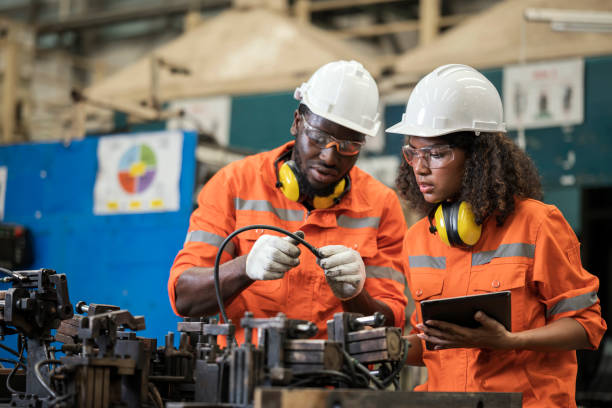Can Oil & Gas Servicing Companies Drive Sustainability?
Across Nigeria’s energy landscape, a quiet but powerful shift is happening. Conversations around cleaner operations, reduced emissions, and long-term environmental responsibility are no longer “future talk”—they are shaping decisions today from Lagos to Port Harcourt, from onshore facilities to deepwater platforms. Even as Nigeria continues to rely on oil and gas as its economic backbone, there is an undeniable push toward operations that respect the environment, improve efficiency, and uphold global standards.
And while exploration and production companies get most of the spotlight, the real engine behind a sustainable transition sits behind the scenes: oil and gas servicing companies. These are the organizations responsible for maintaining assets, ensuring safe operations, and keeping Nigeria’s energy infrastructure running without unnecessary waste or environmental damage. They have carried in many ways, the practical responsibility of making sustainability a reality, which are;
1. Stronger Maintenance Systems That Limit Environmental Hazards
In Nigeria, unplanned equipment failure can quickly escalate into spills, leaks, flaring, or system shutdowns that harm both the environment and local communities. Servicing companies help operators control these risks through structured maintenance schedules, routine inspections, corrosion monitoring, and equipment integrity programs. By ensuring pipelines, tanks, valves, compressors, wellheads, and flowlines stay in peak condition, they help avoid costly environmental incidents and build a more responsible industry culture. Effective maintenance also means fewer interruptions, lower emissions, and stronger compliance—key elements of a cleaner energy future.
2. Boosting Operational Efficiency and Reducing Fuel Consumption
Energy efficiency is becoming a major focus for operators trying to reduce running costs, minimize emissions, and stay competitive in Nigeria’s evolving regulatory space. Servicing companies help improve efficiency by tuning equipment to optimal performance levels, reducing energy losses, improving combustion systems, and ensuring processes run smoothly. With better efficiency comes lower fuel usage, steady production, fewer breakdowns, and a cleaner carbon footprint. In a country where fuel cost volatility is common, efficiency isn’t just environmental, it’s survival.

3. Strengthening HSE Compliance Across All Nigerian Operations
No sustainable system can exist without a strong foundation of safety. Servicing companies play a crucial role in enforcing a safety-first culture across worksites ensuring technicians follow HSE protocols, operators meet regulatory standards, and every process aligns with global best practices. From risk assessments to incident prevention, from equipment isolation to emergency response planning, these companies help build operations that protect both workers and the communities around them. A cleaner oil and gas sector starts with disciplined safety and environmental management at every level.
4. Driving the Adoption of New Technologies That Support Cleaner Operations
As Nigeria moves toward modernization, servicing companies are often the first to introduce and implement new technologies: digital monitoring tools, predictive maintenance systems, emission-control equipment, automated diagnostics, and cleaner production technologies that reduce waste. These advancements don’t just make operations smarter, they reduce environmental impact and prepare the industry for long-term transition. By integrating innovation into daily operations, servicing firms help bridge the gap between traditional oil and gas processes and the future of cleaner energy.
At the end of the day, can Oil and Gas servicing companies drive sustainability in Nigeria?
Yes. Not only can they—they already are. Every inspection completed, every safety standard enforced, and every efficiency improvement made contributes to a greener, Nigerian energy sector. Sustainability isn’t only about replacing the fossil fuels; it’s also about operating today’s systems with more care, intelligence, and more commitment to the environment.
Companies like SRL are part of this shift, quietly pushing the industry forward, strengthening operational standards, and helping Nigeria take meaningful steps toward a cleaner energy future.



